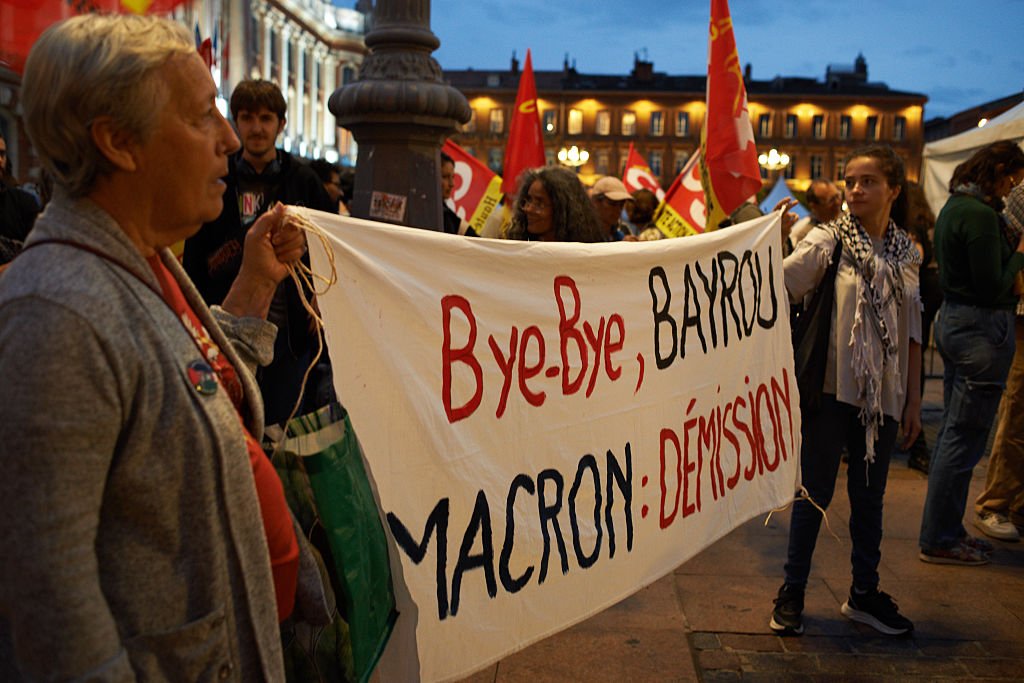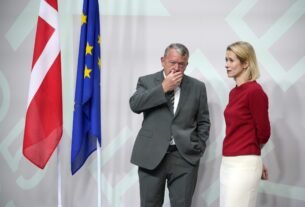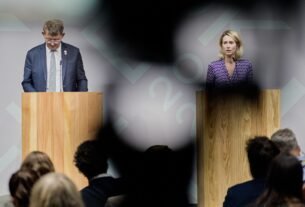Today’s edition is powered by the European Commission
—————————————————————————————————————
At one of his first major rallies in July 2016, Emmanuel Macron declared his intention to bring together “men and women from the left, men and women from the right”. This would, he said, “set the country free”.
Yesterday, as a president barricaded in his bunker, Macron could reasonably claim to have fulfilled this campaign promise, as MPs on both the left and the right united to eject his fourth prime minister in three years.
Macron rose to power on the promise to transcend political polarity by charting a course between economically liberal conservatives and advocates of social justice on the left. The results of the 2022 presidential election seemed to vindicate him, as the Socialist Party garnered only 1.74% of the vote and the right-wing Republicans only 4.78%, leaving the president to face Marine Le Pen in the second round.
But in setting up a duel with the far right, Macron has instead normalised the rhetoric of the Rassemblement National. By hollowing out the major governing parties, he has suppressed the alternation in power that ensures democratic breathing space.
This seizure of power by the ‘central bloc’ – which, by bringing together supporters of both the left and the right, was legitimate by definition – was moreover accompanied by a marked absence of debate within the National Assembly.
Since 2022, Macron’s governments have invoked Article 49.3 of the Constitution 23 times – pushing through legislation without a parliamentary vote, most notably the highly controversial 2023 reform to raise the retirement age from 62 to 64.
The president’s trademark middle way (“En même temps”) was, of course, no more than a fig leaf for the pursuit of a highly aggressive supply-side policy. As a former adviser to Socialist president François Mitterrand observed in 2017: “When someone claims to be neither left nor right, it’s because they are on the right”.
By calling a vote of confidence, Bayrou – one of Emmanuel Macron’s earliest supporters in 2017 – hoped to persuade French parties of the urgent need to “restore balance to the public finances”, but without fundamentally questioning the €44 billion savings plan unveiled in mid-July.
It was hoped that the financial urgency would bypass tedious political debate, even though deciding a budget is an inherently political problem. As if simply by implementing a catalogue of technical measures, the yawning deficit would be resolved – and with it the political crisis.
But in trying to do away with parliamentary discussion, the inability of parties in the National Assembly to agree on a budget only highlights the urgent need to restore political debate. And tomorrow’s demonstrations should be seen as a vital safety valve against the suffocation that has for too long stifled French society.
In 2017, Macron wanted to “set the country free”. Tomorrow he will hear the voice of a free France as demonstrators gather outside the gates of the Élysée.
Roundup
The balance of power – The European Commission and Parliament reached a deal on Tuesday to recalibrate the balance of powers between them, according to sources with direct knowledge of the talks.
Vučić under scrutiny – “The EPP does not have a blind eye on what is happening in Serbia,” Manfred Weber told reporters, adding that he would submit Vučić’s party to a “scrutiny process” which he expects to conclude “in the next few days”.
Ignoring the competitiveness comet – In ‘Don’t Look Up’, politicians delay, distracted by polls and special interests, until it is too late to act. Unless Europe acts now, it will find that the comet has already struck.
Across Europe
Centre-left holds in Norway – Labour clawed back momentum after rolling out a fixed-price subsidy to shield households from soaring electricity bills.
Are French finances really that bad? – Many claim France is on the brink of economic collapse. But analysts note that the imminent risks posed by rising bond yields and debt levels are mostly exaggerated.
Danish bid for 2040 climate target – Danish officials have made “substantial changes” to a proposal to cut greenhouse gas emissions to a tenth of their 1990 levels by the end of the next decade, to avert a situation where the EU heads to the COP 30 climate summit empty-handed.





